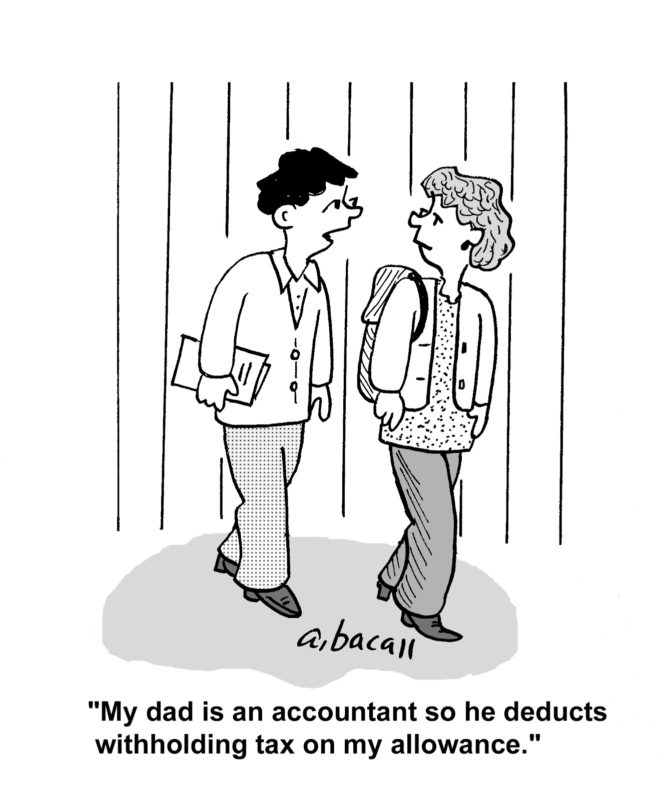Google “List of taxes we pay” and see what comes up. Our search found various lists of anywhere from 12 to 100 taxes and fees we pay directly or indirectly. Forbes reports that Americans will spend more that 8.9 billion hours on tax compliance.
With April 15th right around the corner, tax filing is on everyone’s mind.
The new administration has announced tax reform as a priority. President Trump has said he wants to lower the tax burden on American businesses and middle class families. Treasury Secretary Steven Mnuchin recently announced his “aim of passing major legislation” on taxes this year “before Congress leaves for its August recess.” Who will be involved in reforming the code and how likely is it we will see tax reform this year?
What’s the Government’s Role in Taxes?
The Policy Circle Brief on Taxes reminds us that our government derives it revenue from taxes on individuals and businesses. So one of the key players in this debate is you, the taxpayer. Others that play a role in tax policy and enforcement are:
- the Executive Branch, which sets policy priorities.
- Congress, which writes and passes the legislation. According to the US Constitution, all tax legislation “must ‘originate’ in the House of Representatives.” (Treasury.gov) The two main committees are the House Ways and Means Committee and the Senate Finance Committee.
- The Internal Revenue Service (IRS), which enforces tax law and collects revenue.
The Policy Circle Tax Brief covers the various types of taxes, how tax rates are calculated, and other specifics that will be included in any reform.
What are Some Policy Suggestions for Reform?
Lawmakers on both sides of the aisle support comprehensive tax reform, as The Tax Foundation notes: “there is a widespread consensus among Americans across the political spectrum that the U.S. tax system is overly complex, inefficient, uncompetitive, and due for an overhaul.” While the administration has not released a proposal yet, one proposal that has been offered is Speaker of the House Paul Ryan’s plan to overhaul the 74,608 page tax code, included in his comprehensive agenda, “A Better Way.”
The free-market think tank The Mercatus Center, without offering a specific proposal, outlines principles for a successful tax code including:
Simple. The complexity of the tax system makes compliance difficult and costly. Complexity also encourages tax avoidance. A simpler and more transparent tax code promotes compliance and increased revenues.
Efficient and Equitable. Americans of all income levels believe the tax code is unfair. This perception is largely fueled by the code’s “loopholes”—or provisions intended to benefit or penalize select individuals and groups. “Tax fairness” should reduce or eliminate provisions that favor one group or economic activity over another, especially among equal-income earners.
Predictable. Tax certainty is a necessary condition for robust economic growth and investment, and it enhances competitiveness. An environment conducive to growth requires a tax code that provides both near- and long-term predictability.
Want to Dig Deeper?
Tax reform is a complex issue that impacts each of us. Here are some good resources to use if you want to dig deeper and learn more.
- AEI, “Toward Fundamental Tax Reform”
- Urban Institute & Brookings Institution’s Tax Policy Center Briefing Book, “How Could we Improve the Federal Tax System?”
- The Mercatus Center, “‘Fixing’ the Tax Code: Key Principles for Successful, Sustainable Reform”
- Tax Foundation’s Center for Federal Tax Policy
This March Policy Circles are meeting for roundtable discussions about taxes using the Policy Circle Brief.
It’s a movement!
Recommend a Circle Leader. Especially in Nebraska, Wisconsin, Minnesota and Missouri where circles are sprouting.
Start a Circle in your neighborhood. Add value in your community by giving women the facts and the space to strengthen their understanding of the issues.
Invest in The Policy Circle. Together let’s build a network of women who want to assume their civic duties and understand the impact of policy in their lives.
The Policy Circle is a 501(c)3 that provides a fact-based, nonpartisan framework that inspires women living in the same community to connect, learn about and discuss public policies that impact their lives. Women across the nation are taking a leadership role in public policy dialogue on what human creativity can accomplish in a free market economy.
